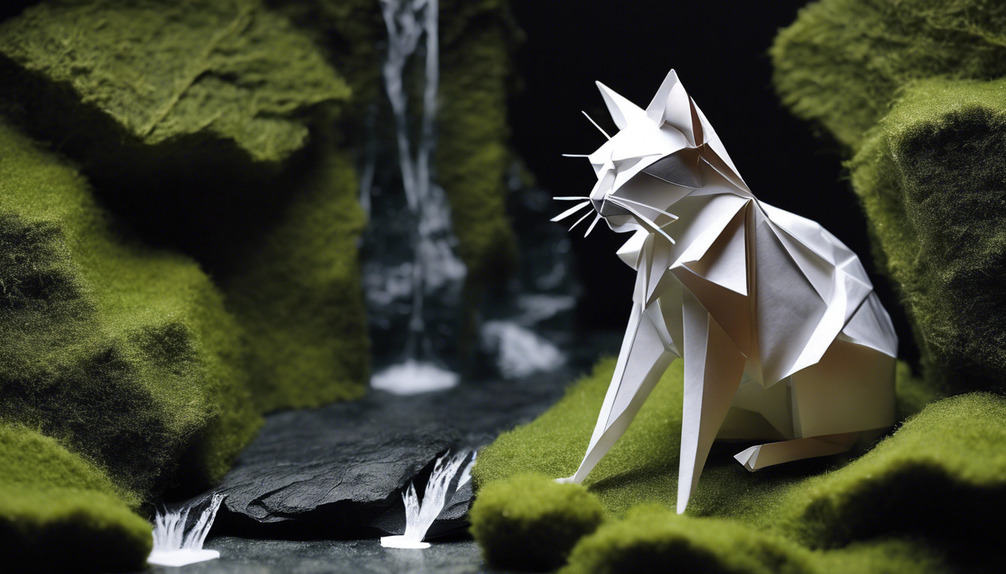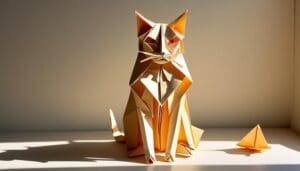You want to give your old cat the best care as they get older. As your cat ages, you may notice changes in their health when it comes to their kidney function. It’s essential to ensure their diet supports their kidney health, but with so much information out there, it can be overwhelming to know where to start.
Understanding which foods can boost kidney function in elderly cats is crucial, and it can make a significant difference in their overall well-being. So, let’s explore the best dietary options to support your beloved senior cat’s kidney health and give them the quality of life they deserve.
Key Takeaways
- Adequate hydration is crucial for senior cats’ kidney function and overall well-being.
- Incorporating wet food into their diet or adding water to meals can increase water intake and support kidney function.
- Protein restriction is crucial to lessen the workload on the kidneys.
- Limiting dietary phosphorus and sodium helps delay CKD progression and aids in hydration support.
Importance of Hydration for Senior Cats
Ensuring adequate hydration for your senior cat is crucial as it directly impacts their kidney function and overall well-being.
As cats age, their thirst drive may decrease, making it challenging for them to consume enough water. This can lead to dehydration, exacerbating any existing kidney issues.
To support your senior cat’s hydration, consider incorporating wet food into their diet or adding water to their meals. This not only increases their water intake but also helps maintain proper kidney function.
Ensure your senior cat has regular access to fresh water throughout the day. Encouraging water intake through various methods, such as providing a pet water fountain or offering wet food, can significantly benefit their overall hydration.
Nutritional Requirements for Elderly Cats With Kidney Issues
As your cat ages, their nutritional needs change, especially if they have kidney issues.
It’s important to consider protein restriction, phosphorus management, and hydration support to help support their kidney function.
Making these adjustments can help improve your cat’s quality of life and ensure they’re getting the right nutrients to support their overall health.
Protein Restriction
To support the kidney function of your elderly cat with kidney issues, it’s crucial to decrease their protein intake, thereby lessening the workload on their kidneys. When choosing cat food, opt for options with lower protein content to ease the strain on your cat’s kidneys.
Consider incorporating more wet food into their diet, as it generally contains less protein than dry food and helps with hydration, benefiting their kidney function. You should consult your veterinarian to find cat food specifically designed for kidney disease (CKD), as these formulas have restricted protein levels, making them ideal for supporting your cat’s kidney function.
Phosphorus Management
Supporting your elderly cat’s kidney function through careful management of dietary phosphorus is crucial for their overall health and well-being. Chronic kidney disease (CKD) in cats requires special attention to their diets, particularly in managing phosphorus levels. Diets for cats with CKD should aim to limit phosphorus content to a range of 0.3-0.6% to help delay the progression of the disease.
Monitoring and managing phosphorus intake is essential for maintaining kidney function in elderly cats. Ensuring that your cat’s food contains controlled phosphorus levels is a proactive way to support their kidney health. By being mindful of the phosphorus content in your cat’s diet, you can make a meaningful impact on their quality of life.
Hydration Support
Feeding your elderly cat with kidney issues canned food can significantly increase their moisture intake, helping to support their hydration needs. As you strive to provide the best care for your beloved cat, consider these essential hydration support tips for their kidney health:
- Opt for Canned Food: Choose canned cat food with high moisture content to ensure your cat receives adequate hydration support, especially if they’ve kidney issues.
- Decrease Protein Intake: Lowering protein intake can ease the workload on your cat’s kidneys, supporting their kidney function and overall health.
- Limit Phosphorus and Sodium: Restricting dietary phosphorus and mild sodium can help delay the progression of Chronic Kidney Disease (CKD) and reduce the workload on your cat’s kidneys, aiding in hydration support.
Senior Cat-Friendly Ingredients to Boost Kidney Function
Enhancing your elderly cat’s kidney function can be achieved by incorporating senior cat-friendly ingredients into their diet. For cats with Chronic Kidney Disease (CKD) or kidney failure, it’s essential to be mindful of the ingredients in their diets.
Opt for pet food that includes high moisture content, such as canned food, to support their hydration. This is crucial because elderly cats have decreased urine concentration, and adequate water intake is vital for their kidney function.
Consider the protein content in their diet. A mild reduction in protein intake can help lessen the workload on their kidneys. Limiting dietary phosphorus is important as it can delay the progression of kidney disease in elderly cats. Look for pet food specifically formulated for senior cats with CKD, as these diets often have restricted phosphorus levels.
Incorporating ingredients with mild restriction of dietary sodium can also be beneficial. This can reduce the workload on the kidneys of elderly cats, supporting their overall kidney function.
When selecting pet food for your elderly cat, prioritize these senior cat-friendly ingredients to promote their kidney health and overall well-being.
Recommended Commercial Kidney Supportive Diets for Elderly Cats
When it comes to caring for your elderly cat, choosing the right food can make a world of difference in their kidney health. It’s important to consider the nutritional requirements specific to senior cats with kidney issues.
With options like Hills Prescription Diet, Purina Veterinary Diets, and Royal Canin, you can find the ideal kidney support diet to help your beloved cat thrive.
Elderly Cat Diet Options
Have you considered incorporating specialized kidney-supportive commercial diets into your elderly cat’s feeding routine? When it comes to managing chronic kidney disease (CKD) in elderly cats, choosing the right diet is crucial.
Here are some highly recommended commercial kidney-supportive diets for elderly cats:
- Hills Prescription Diet, Purina Veterinary Diets, and Royal Canin: These brands offer effective products specifically designed for managing CKD in elderly cats.
- Canned Food: Ideally, cats with CKD should be fed canned food due to its higher moisture content, which helps support kidney function.
- Omega-3 Fatty Acids: Look for diets containing omega-3 fatty acids, as they’ve been shown to be beneficial for kidney health in elderly cats.
Nutritional Requirements for Cats
Considering your elderly cat’s specific needs, incorporating specialized kidney-supportive commercial diets can play a crucial role in supporting their overall kidney function. Cats with Chronic Kidney Disease (CKD) require specific nutritional support to help manage the disease and its symptoms.
These diets are formulated to help reduce the workload on the kidneys by controlling protein intake, managing phosphorus levels, and boosting omega-3 fatty acids to slow down the progression of the disease. By prioritizing these nutritional requirements, you can help delay CKD progression and minimize the impact of metabolic acidosis, a common issue in cats with CKD.
Choosing the right commercial kidney support diets for your elderly cat can significantly help in managing the disease and improving their overall quality of life.
Choosing the Right Food
As you care for your elderly cat’s specific needs, choosing the right commercial kidney-supportive diets is crucial for managing their Chronic Kidney Disease (CKD) and improving their overall quality of life. When selecting the best food for your cat’s kidney health, consider highly digestible options like the Hills Prescription Diet, Royal Canin, or Purina Veterinary Diet.
These diets are specially formulated to support cats with kidney issues, prioritizing factors like controlling clinical signs, managing fluid balance, sustaining nutrition, and slowing CKD progression.
Look for food with appropriate protein content (28-35%), phosphorus content (0.3-0.6%), mildly restricted sodium levels, and omega-3 fatty acids (0.4-2.5%) to aid in reducing inflammation and slowing CKD progression.
Homemade Diet Options for Supporting Kidney Health in Senior Cats
When caring for your senior cat’s kidney health, consider incorporating homemade diet options to provide essential nutrients and support their overall well-being. Cats with CKD require a diet that helps manage waste products to slow the progression of the disease. Homemade recipes tailored for cats with kidney disease can be beneficial.
A blend of chopped chicken breast, cooked white rice, Omega-3 fish oil, salt substitute, calcium, feline multi-vitamin, and taurine can provide the necessary nutrients. Getting your cat off dry food is crucial for hydration, and additional support through subcutaneous fluids can be beneficial.
Homemade diets tailored to your cat’s specific needs can ensure they receive natural cat vitamins and supplements, with an emphasis on Omega-3 fatty acids from wild fish. It’s important to consider additional supplements such as probiotics, digestive enzymes, and antioxidants to support normal kidney function.
When managing cats with CKD and non-kidney diet, ensuring they consume enough calories from quality food is vital. By offering a homemade diet that caters to their specific health needs, you can help your beloved cat live a more comfortable and fulfilling life.
Monitoring and Adjusting Diet for Senior Cats With Kidney Concerns
Regular veterinary check-ups are crucial for monitoring your senior cat’s kidney health and adjusting their diet according to the stage of chronic kidney disease (CKD). As your beloved cat ages, it’s important to stay vigilant and proactive in managing their kidney concerns.
Here’s what you need to do:
- Consult the Veterinarian: Regular consultations with the veterinarian are essential for assessing your cat’s kidney function. Through blood tests and urinalysis, the vet can determine the stage of CKD and recommend appropriate dietary adjustments.
- Optimize Hydration and Nutrition: Ensure your cat’s diet includes sufficient moisture, which can be achieved through canned food, to support hydration and kidney function. Consider transitioning to a lower protein diet to reduce the workload on the kidneys. It’s crucial to follow the veterinarian’s guidance regarding protein intake adjustments.
- Manage Phosphorus and Sodium Intake: Monitoring and limiting dietary phosphorus and sodium intake can help slow the progression of CKD and reduce the workload on the kidneys. Your vet may recommend specific commercial renal diets, such as Canin Renal, tailored to support kidney health.
Frequently Asked Questions
What Can I Feed My Elderly Cat With Kidney Disease?
Consider a diet rich in moisture, low in phosphorus, and high in omega-3 fatty acids. Homemade options provide control over nutritional elements for your beloved cat.
What Not to Feed a Cat With Kidney Disease?
You shouldn’t feed a cat with kidney disease high-protein or high-phosphorus foods, or those with excessive sodium or omega-6 fatty acids. Also, avoid dry food and opt for canned to increase moisture intake.
How Can I Strengthen My Cats Kidneys?
You want to strengthen your cat’s kidneys? Consider reducing protein intake and managing phosphorus levels. Incorporate omega-3 fatty acids and increase water intake. Homemade recipes with chicken, rice, and omega-3 fish oil can support kidney health.
How Do You Slow Down Kidney Disease in Cats?
To slow down kidney disease in cats, you should decrease their protein intake, limit dietary phosphorus, mildly restrict sodium, and increase omega-3 fatty acids in their diet. Also, feeding them canned food helps increase their moisture intake.




